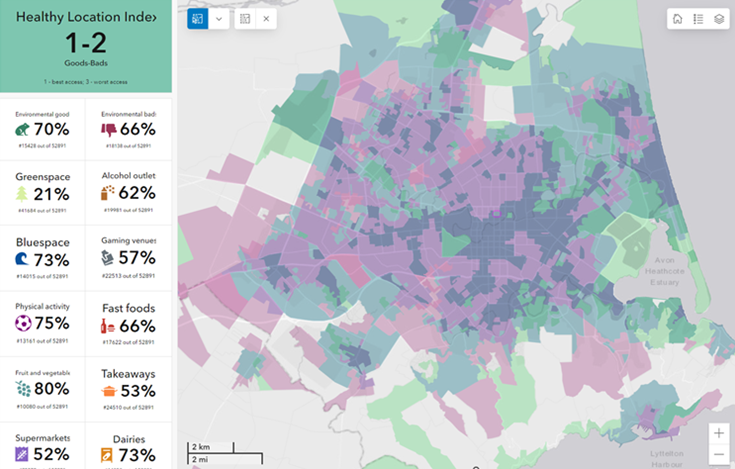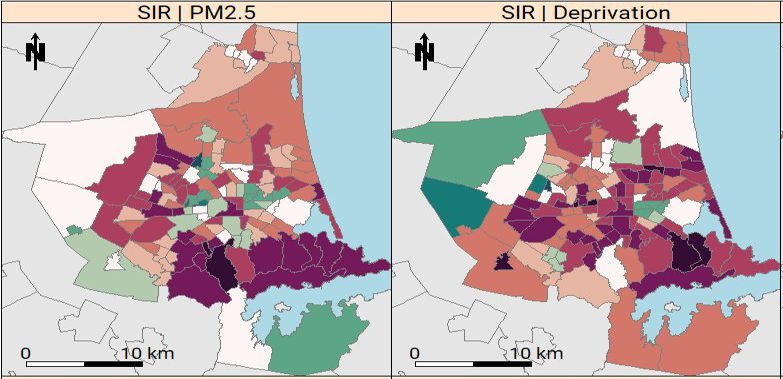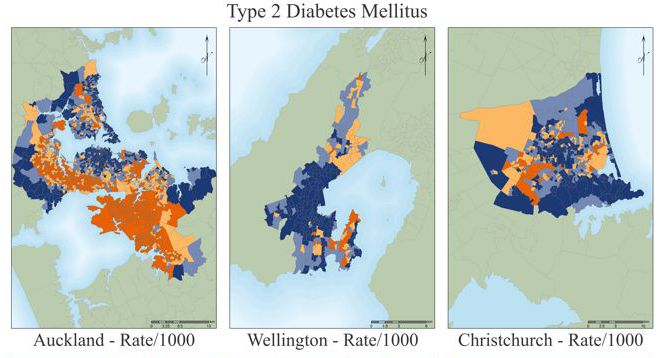Vaping

Towards personalised digital health services for preventable health conditions – virtual reality and cue reactivity Research Team:Melanie TomintzSimon HoermannMaria C Vega CorredorDr. Merel KeijsersMSc. Nawam Karki Summary Electronic nicotine delivery systems (ENDS), were developed to provide an effective substitute for quitting smoking and as an alternative to conventional cigarettes. Nowadays, their use has rapidly grown […]
Healthy Location Index

Research team Lukas Marek Matthew Hobbs Jesse Wiki Malcolm Campbell Simon Kingham Duration Ongoing from 2021 Project summary Accounting for the co-occurrence of multiple environmental influences is a more accurate reflection of population exposure than considering isolated influences, aiding in understanding the complex interactions between environments, behaviour and health. Healthy Location Index describes how environmental […]
Real time environmental sensors to improve health in the Sensing City

New Zealand has an excellent record of conserving its native flora and fauna through pest control measures, especially in large uninhabited areas. Meanwhile large tracts of land owned by private individuals remain relatively unprotected. When it comes to land management decisions such as pest control actions, careful negotiations are required with a wide range of stakeholders with differing views – from cat-loves to rabbit-haters – so that agreements can be reached. The aim of this research project led by Audrey Lustig, Mike Plank and Alex James is to develop a planning tool for predicting the abundance and the likely persistence of New Zealand top mammalian predators in the light of potential changes in management effort across human-dominated landscape. We use the Cape-to-City (C2C) footprint covering 26,000 ha of agricultural land in Hawke’s Ba as a case study.
Built Environment and Health: A geospatial analysis of diabetes in urban New Zealand

Researcher Jesse Wiki Duration 2016-2019 Summary Diabetes is a chronic health condition which occurs when the pancreas is not producing enough insulin, which regulates blood sugar, or becomes resistant to and cannot effectively use the insulin it produces. There are three types of diabetes: type 1 (T1DM) which occurs through biological effects where the body […]
Towards personalised digital health services for preventable health conditions. Virtual environments to study preventive health attitudes “VESPHA” case study: vaping

Research teamMelanie TomintzSimon HoermannNawam KarkiMaria C Vega CorredorMerel Keijsers Duration2018-2020 FundingHealth Research Council 18/789 Project summary To improve preventive health outcomes, a radical shift in thinking needs to be introduced to understand underlying causes of people’s subconscious behaviour to provide personalised digital health services in future; especially to support people most in need, eg. Māori. […]
